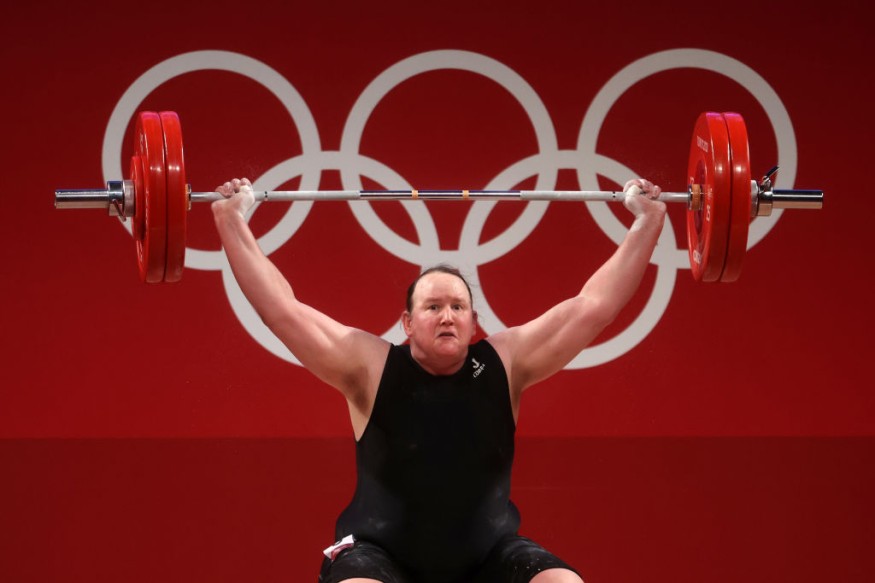
Laurel Hubbard made history on Monday, becoming the first openly transgender woman to compete in the Olympics. All eyes were on Hubbard inside the Tokyo International Forum as she competed in the +87 kilogram category of women's weightlifting at the Tokyo Olympics.
However, the 43-year-old was immediately knocked out of the event after failing on all three of her lift attempts. Hubbard bailed out early on her first attempt to lift 120 kilograms. Hubbard was able to get her second attempt of 125 kilograms over her head, but the judges ruled it as a "no lift".
Hubbard eliminated quickly after failing to lift all three of her attempts
The New Zealand native returned quickly to the platform for another attempt at 125 kilograms, but her third and final try failed yet again as she could not stand up with the weight above her head. Hubbard was the only athlete out of the 13 finalists competing not to execute at least one successful lift in the event.
In the press conference after her elimination, Hubbard gave thanks to her fans back home, the Japanese people and the New Zealand Olympic Committee for their overwhelming support. Hubbard mentioned the difficulties she encountered on her road to the Olympics, saying, "I know my participation in these games has not been entirely without controversy."
Hubbard also praised the International Olympic Committee (IOC) for letting her compete in the Summer Games, telling the media that the IOC "reaffirmed the principles of the Olympics that sport is something that all people around the world can do, that it is inclusive and successful."
Hubbard's participation in the Tokyo Olympics has sparked tremendous controversy, with many questioning whether transgender athletes should be included in the Games given their inherent "advantage".
Related Article: Champions Collide as Team USA Faces Spain in Men's Basketball Quarterfinals at Tokyo Olympics
Hubbard's tough road to the Olympics
For a brief background on Hubbard, she was born in 1978 in the city of Auckland and had shattered national junior weightlifting records in the boys' 105-kilogram-and-over division in New Zealand. Hubbard gave up the sport in her early 20s and transitioned to being a female in 2012, beginning hormone therapy in her mid-30s.
Hubbard began competing again in weightlifting five years later, with Hubbard taking part in the women's heavyweight category in international tournaments in 2017. Hubbard thought her career was over, though, when she suffered a hideous arm injury in 2018. She managed to recover from that debacle, though, as she sealed a spot in New Zealand's weightlifting team for the Tokyo Olympics.
Olympic rules require a transgender woman to lower her testosterone levels below ten nanomoles per liter for at least 12 months before her first competition in the Summer Games. In layman's terms, Hubbard had to significantly suppress her testosterone levels - a primary male hormone that is vital for muscle mass - and keep it suppressed for a year and beyond for her to be allowed to compete in the Olympics.
Some expressed outrage with this ruling, saying hormonal therapy can reduce but not eliminate the advantages that transgender women gain from having gone through male puberty. The IOC has said it will release a new framework on this issue soon, calling its current policy concerning transgender athletes "outdated."
READ MORE ON SWN:
© Copyright 2026 Sports World News, All rights reserved. Do not reproduce without permission.










